📋 Philosophy of Ethics: Essential Concepts for Reading Comprehension
The philosophy of ethics examines the principles and frameworks that guide human behavior, exploring questions of morality, right and wrong, and the foundations of ethical decision-making. Ethics encompasses various approaches, from analyzing virtues to evaluating the consequences of actions. RC passages on ethics often discuss theoretical frameworks, moral dilemmas, and their applications in contemporary contexts. Understanding these concepts equips readers to critically engage with complex moral questions and their broader implications.

🔑 Key Concepts
This guide explores the following essential concepts in the philosophy of ethics:
- Virtue Ethics
- Consequentialism
- Deontology
- Utilitarianism
- Ethical Relativism
- The Trolley Problem
- Eudaimonia
- Moral Absolutism
- Metaethics
- Situational Ethics
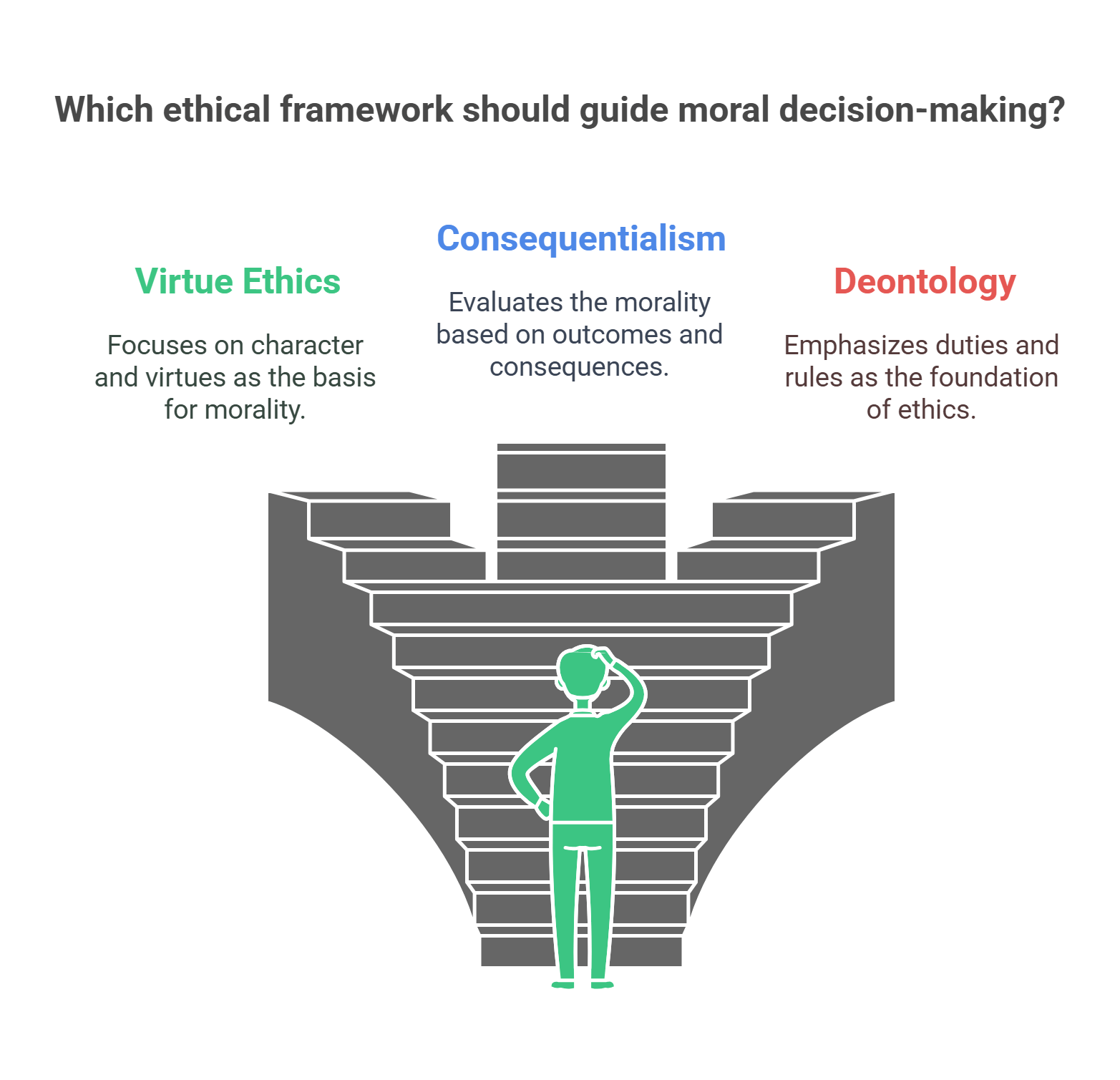
1. Virtue Ethics
Virtue ethics focuses on the character and virtues of the moral agent rather than the morality of specific actions. Rooted in Aristotle’s philosophy, it emphasizes cultivating virtues such as courage, honesty, and compassion to live a morally excellent life.
- Key Features:
- The “Golden Mean”: Virtues lie between extremes (e.g., courage between cowardice and recklessness).
- Character-driven approach to ethics.
- Applications:
- Encourages moral development through habits and role models.
📘 Example: A virtuous person tells the truth not out of duty or consequence but because honesty reflects good character.
Explained Simply: Virtue ethics is like tending a garden—you nurture traits (virtues) to flourish in life.
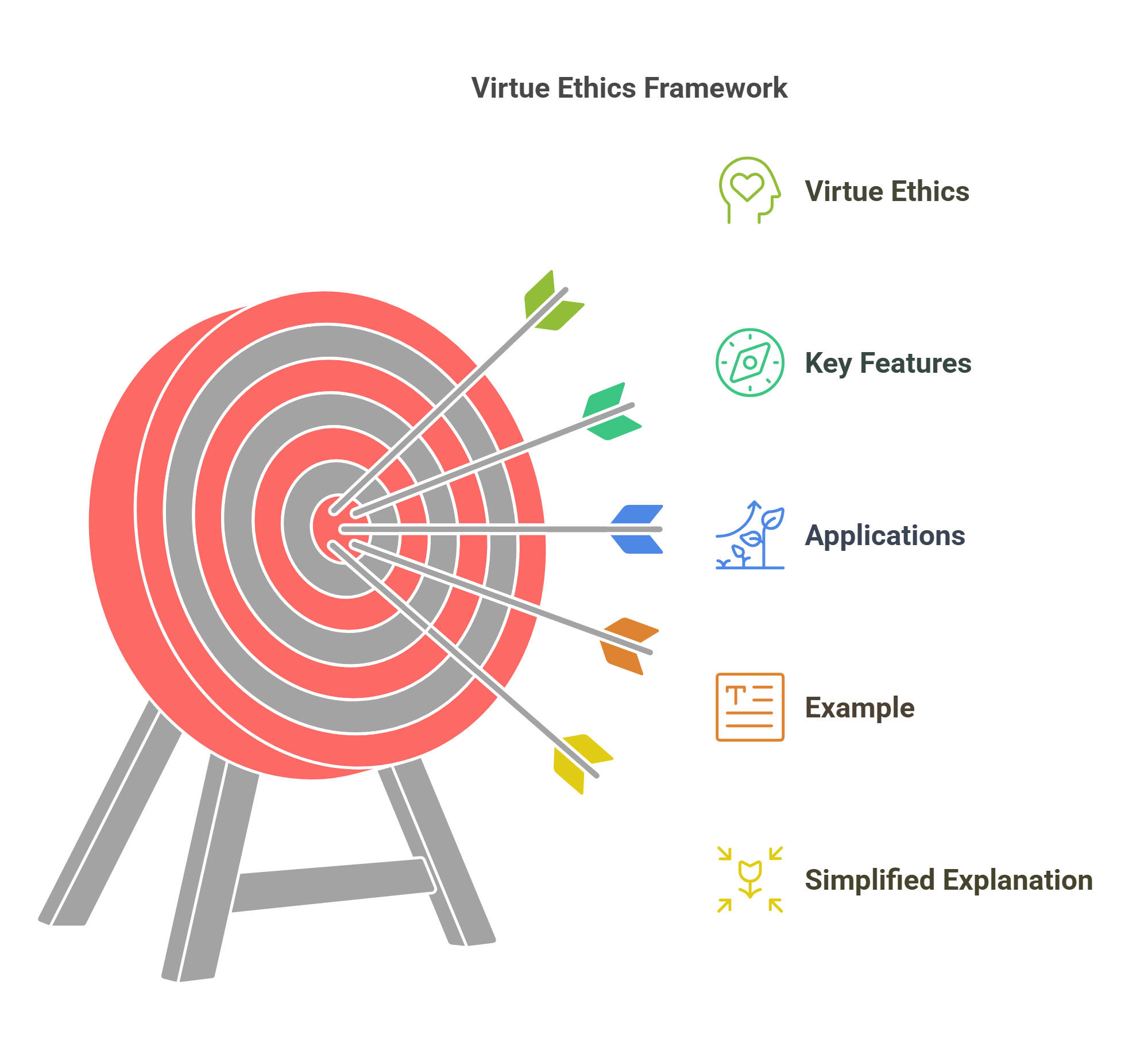
2. Consequentialism
Consequentialism evaluates the morality of actions based on their outcomes. The right action is the one that produces the best overall results.
- Core Principle: “The ends justify the means.”
- Challenges:
- Difficulty predicting long-term consequences.
- Potentially justifies harmful actions if they lead to greater good.
📘 Example: A doctor saving five patients by using the organs of one healthy person would align with consequentialism, despite the moral discomfort.
Explained Simply: Consequentialism is like weighing scales—the action with the heaviest benefits tips the balance.
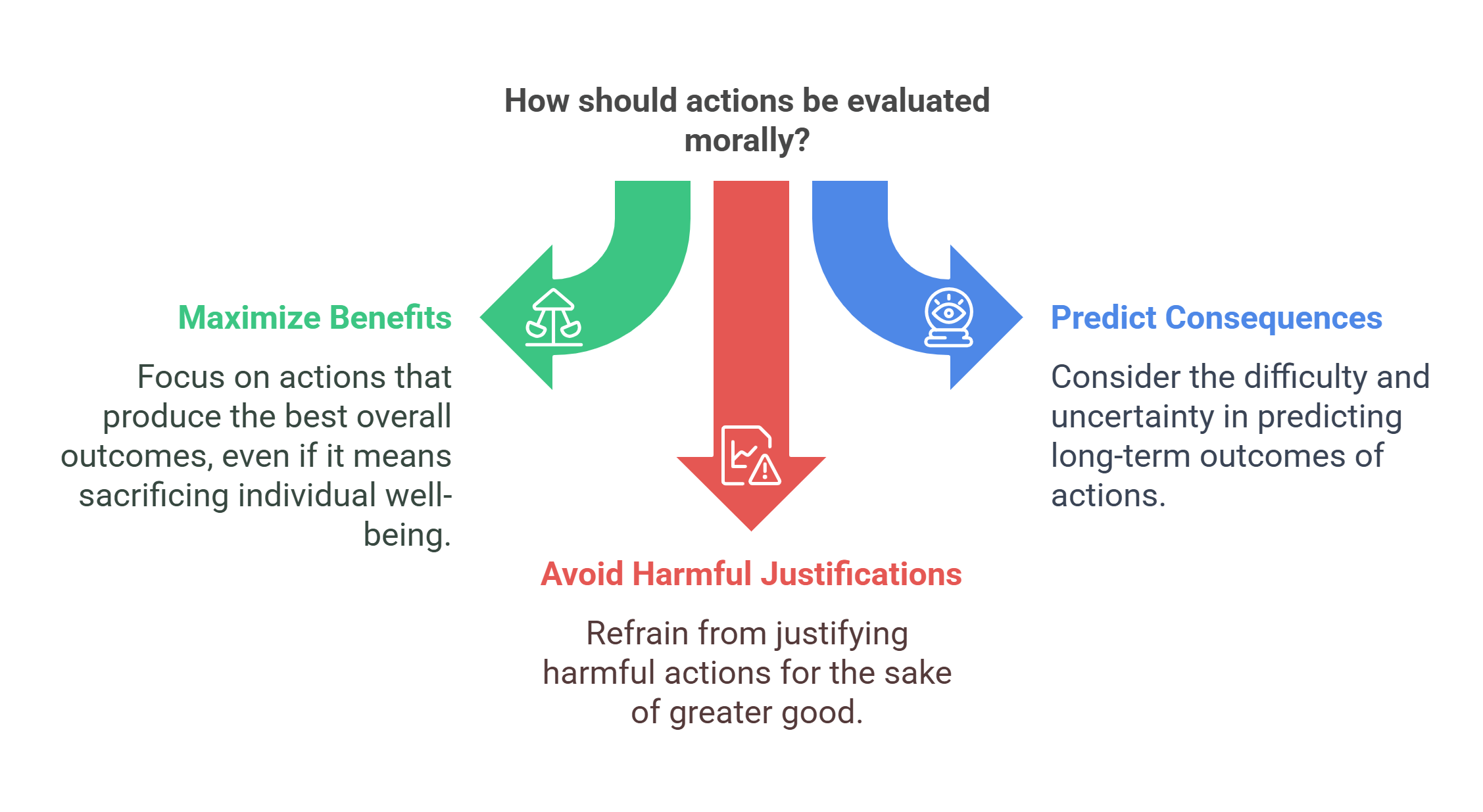
3. Deontology
Deontology, developed by Immanuel Kant, focuses on duties, rules, and principles, arguing that actions are morally right or wrong irrespective of their outcomes.
- Key Concepts:
- Categorical Imperative: Act only according to principles that could become universal laws.
- Emphasizes treating individuals as ends, not means.
- Criticisms:
- Rigid adherence to rules may lead to morally troubling outcomes.
📘 Example: A deontologist would refuse to lie to save someone’s life, as lying is inherently wrong.
Explained Simply: Deontology is like following a moral rulebook—what’s right remains right, no matter the situation.
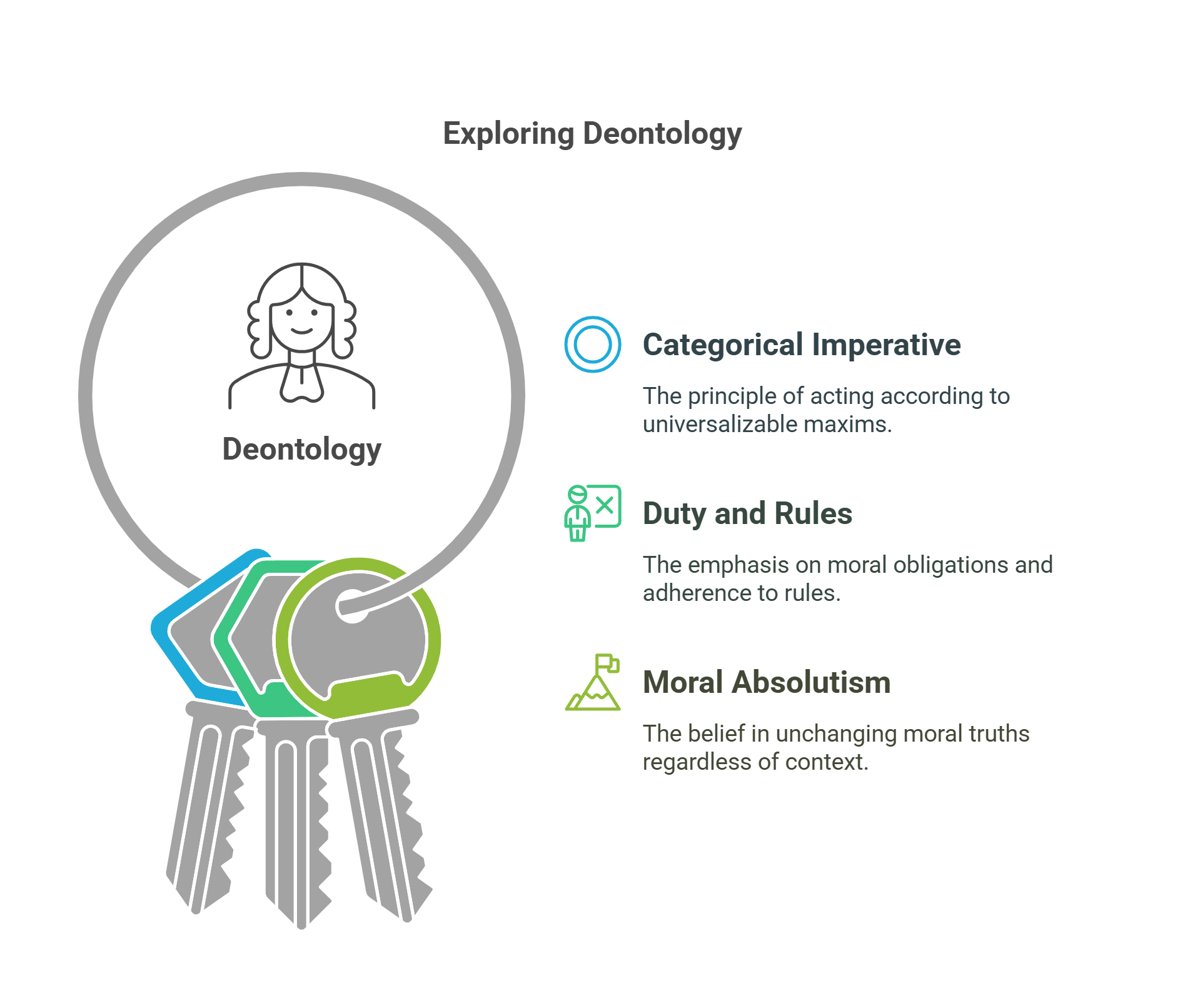
4. Utilitarianism
A branch of consequentialism, utilitarianism, developed by Jeremy Bentham and John Stuart Mill, seeks to maximize happiness and minimize suffering for the greatest number.
- Key Features:
- Focuses on collective well-being.
- Differentiates between act utilitarianism (evaluating individual actions) and rule utilitarianism (following rules that generally maximize utility).
📘 Example: Allocating scarce resources to treat the most patients aligns with utilitarian priorities.
Explained Simply: Utilitarianism is like making decisions with a happiness calculator—more joy equals a better choice.
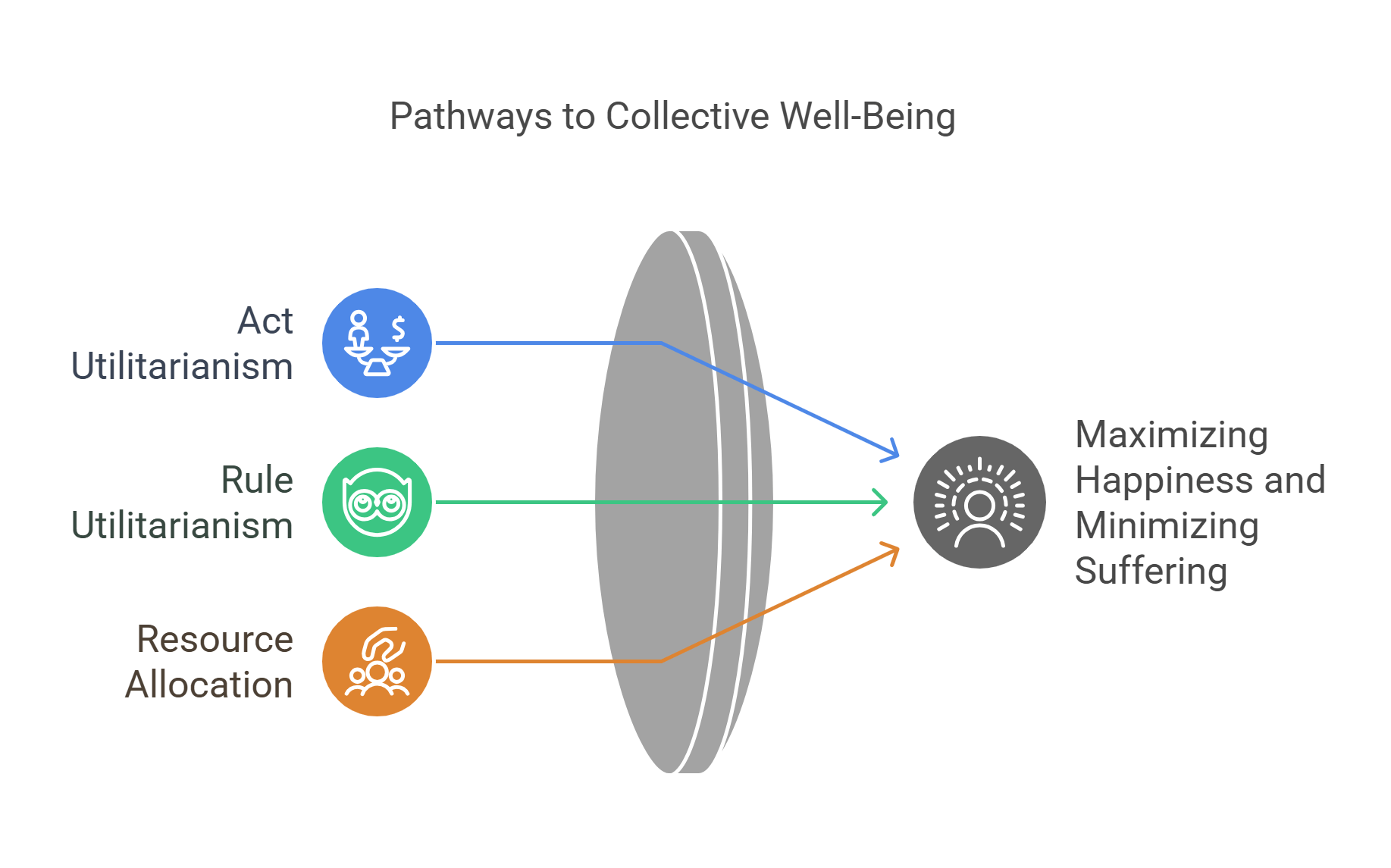
5. Ethical Relativism
Ethical relativism asserts that moral standards are culturally or individually determined, rejecting universal moral principles.
- Types:
- Cultural Relativism: Morality depends on societal norms.
- Subjective Relativism: Individuals decide what is morally right for themselves.
- Criticism:
- Fails to address harmful practices justified by cultural norms (e.g., human rights violations).
📘 Example: Polygamy may be acceptable in some cultures but considered unethical in others.
Explained Simply: Ethical relativism is like seeing morality through local lenses—what’s right depends on where you stand.

6. The Trolley Problem
The Trolley Problem is a moral thought experiment highlighting the conflict between utilitarian and deontological ethics.
- Scenario:
- A runaway trolley is heading toward five people. Pulling a lever diverts it onto a track where it will kill one person instead.
- Debate:
- Utilitarian View: Pull the lever to minimize deaths.
- Deontological View: Refuse to act, as taking deliberate action makes you morally culpable.
Explained Simply: The Trolley Problem is like a mental gym for ethics, testing your moral instincts in a dilemma.
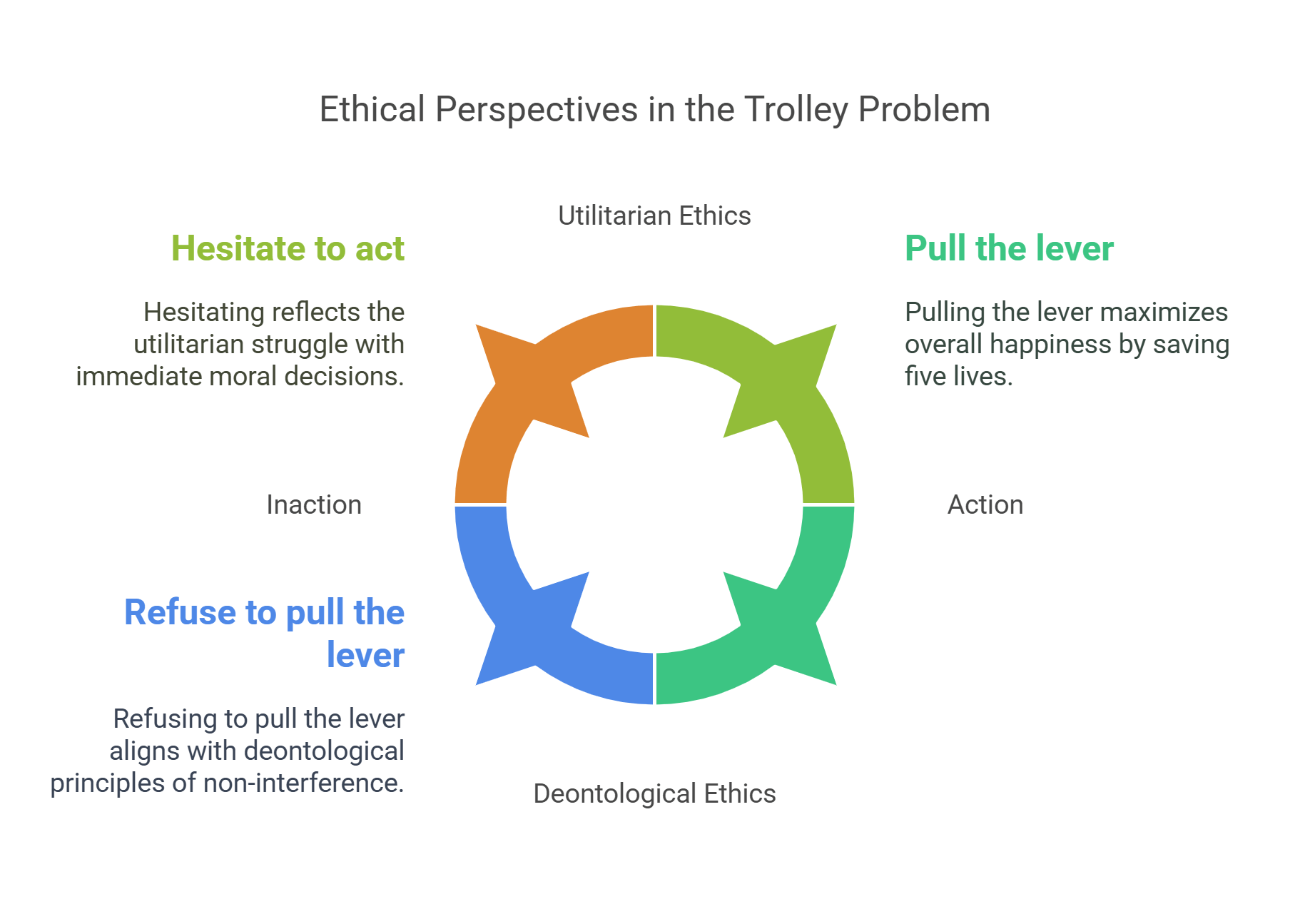
7. Eudaimonia
Eudaimonia, often translated as “flourishing” or “well-being,” is a central concept in Aristotle’s virtue ethics. It represents the highest human good, achieved through living a life of virtue and reason.
- Key Features:
- Long-term fulfillment rather than fleeting pleasure.
- Requires intellectual and moral virtues.
📘 Example: A life dedicated to learning, relationships, and community service exemplifies eudaimonia.
Explained Simply: Eudaimonia is like achieving your best self—a fulfilling, purposeful life.
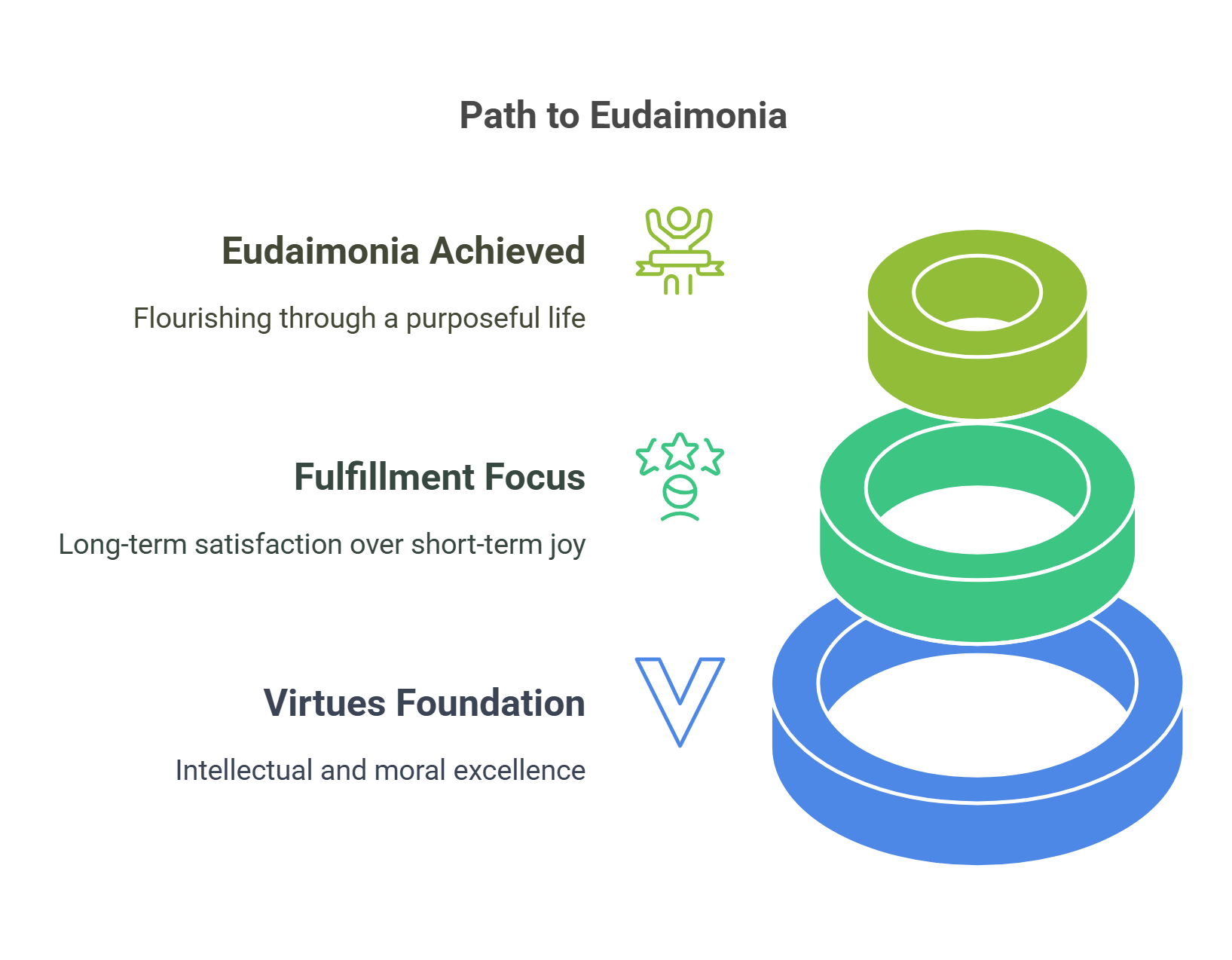
8. Moral Absolutism
Moral absolutism holds that certain actions are inherently right or wrong, regardless of context or consequences. It contrasts with relativism and situational ethics.
- Examples of Absolutist Beliefs:
- Killing is always wrong.
- Honesty is always a moral duty.
- Criticism:
- May ignore complex circumstances where rigid rules cause harm.
📘 Example: Refusing to lie to protect someone during wartime reflects moral absolutism.
Explained Simply: Moral absolutism is like seeing morality in black and white—no shades of gray allowed.
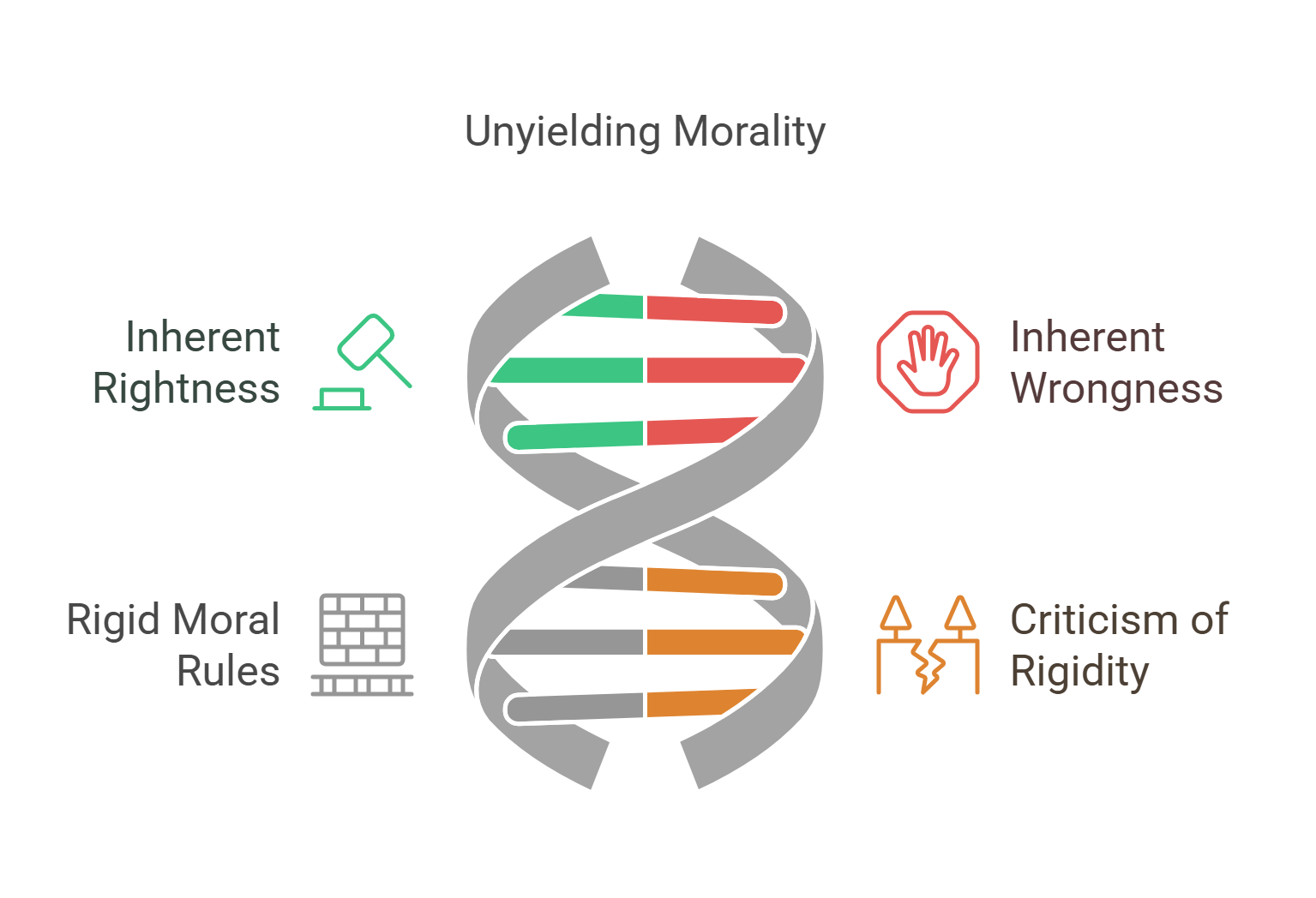
9. Metaethics
Metaethics studies the nature of morality itself, asking foundational questions about moral language, truth, and knowledge.
- Key Questions:
- Are moral values objective or subjective?
- What do terms like “good” or “wrong” mean?
- Branches:
- Moral Realism: Moral truths exist independently of human beliefs.
- Moral Anti-Realism: Morality is constructed or subjective.
Explained Simply: Metaethics is like dissecting the grammar of morality—what do ethical terms really mean?
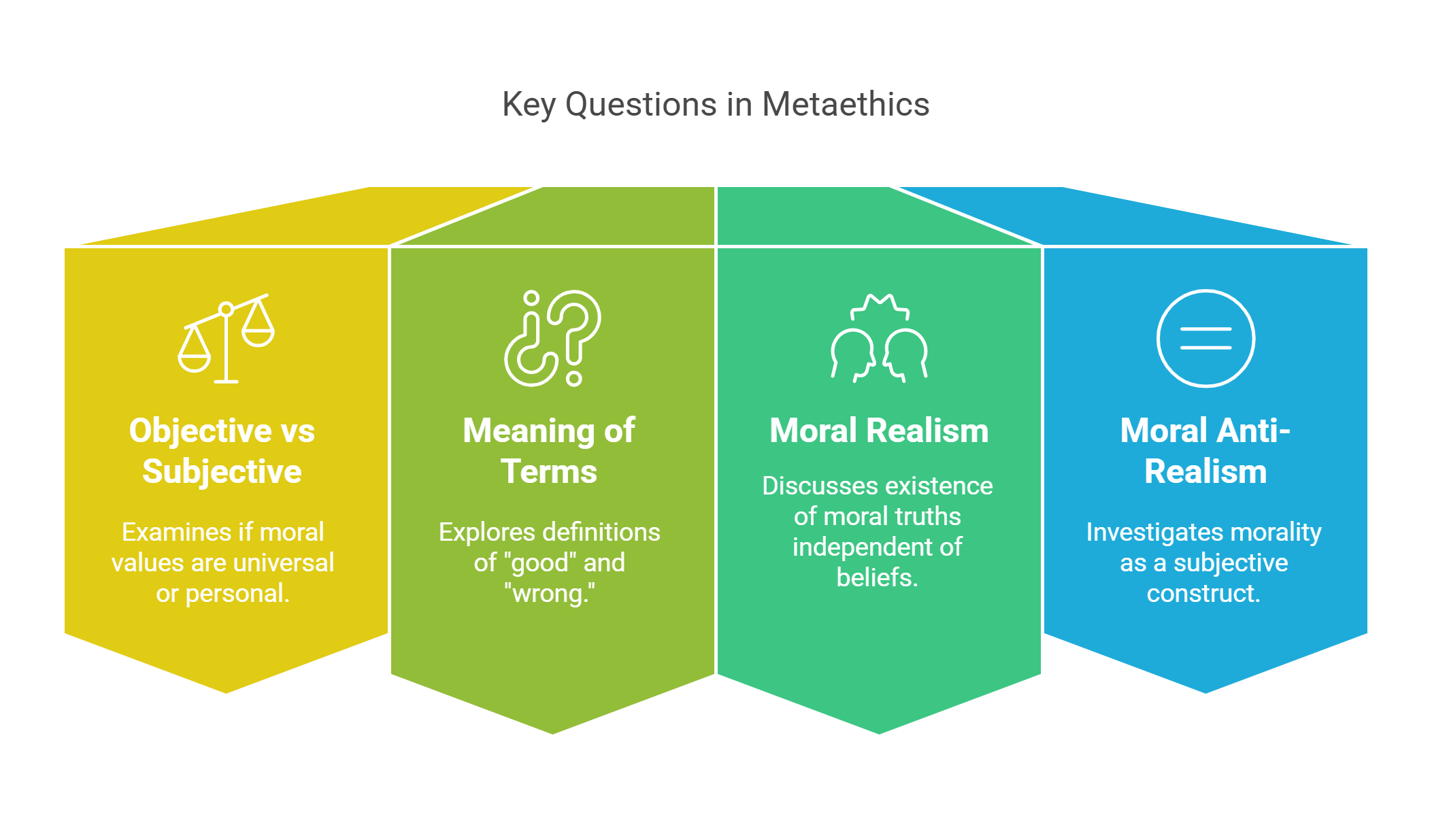
10. Situational Ethics
Situational ethics argues that moral decisions should be based on the specific context rather than rigid rules. It emphasizes love and compassion as guiding principles.
- Key Features:
- Rejects one-size-fits-all morality.
- Requires evaluating outcomes and intentions.
- Criticism:
- May lack consistency and lead to moral uncertainty.
📘 Example: A person stealing food to feed their starving family might be justified under situational ethics.
Explained Simply: Situational ethics is like tailoring morality to fit each unique situation.
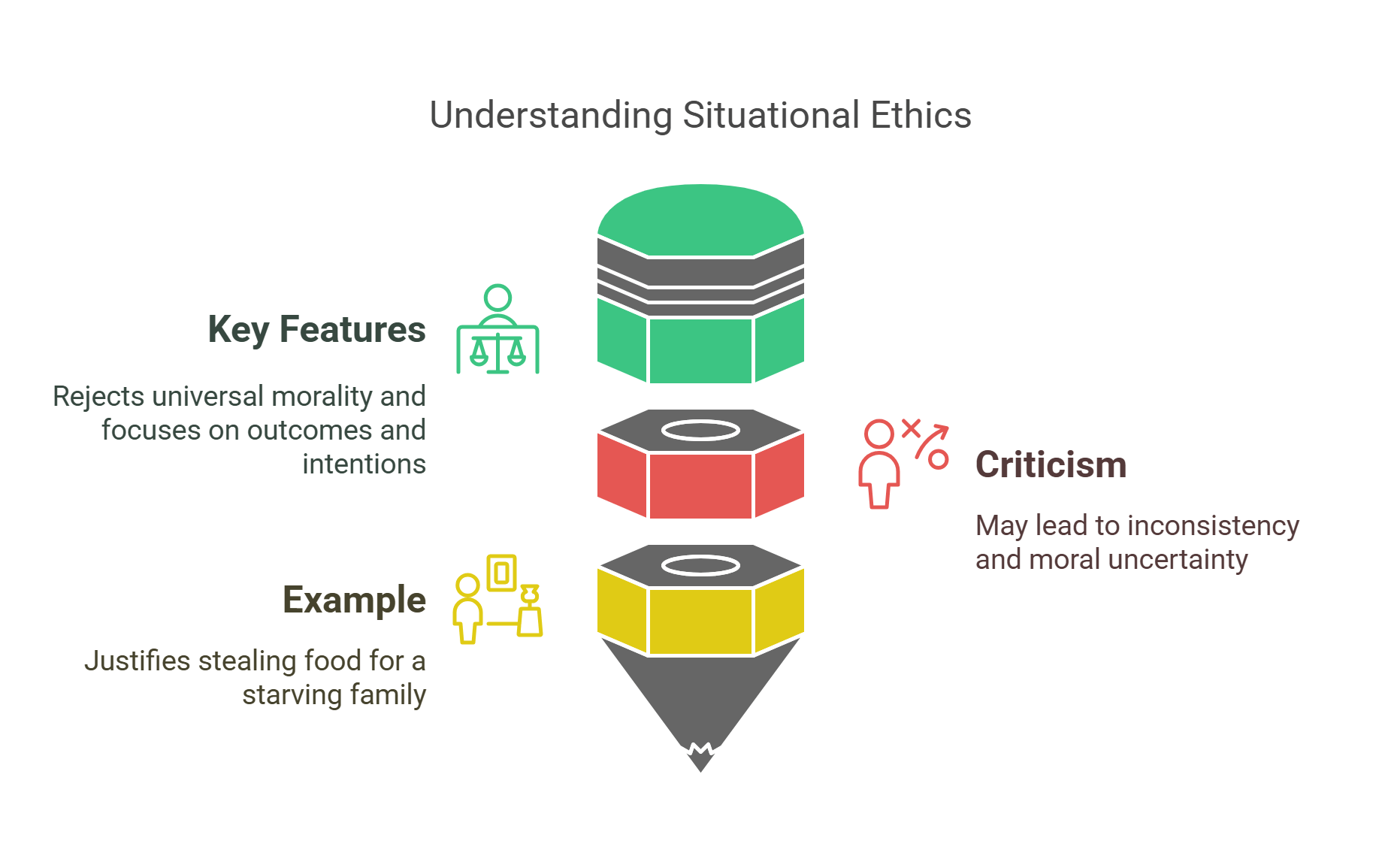
✨ Conclusion
The philosophy of ethics provides profound insights into human morality, exploring frameworks like virtue ethics, deontology, and consequentialism to guide ethical decision-making. By mastering concepts like the Trolley Problem, eudaimonia, and metaethics, readers can critically analyze RC passages and real-world moral dilemmas. This field challenges us to reflect on what it means to live a good and just life in an ever-changing world.












